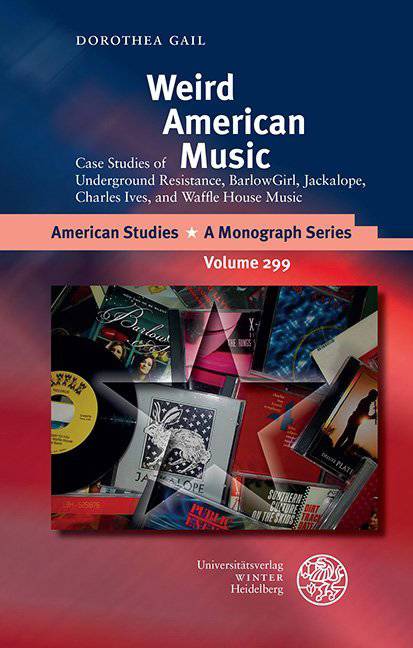
Bedankt voor het vertrouwen het afgelopen jaar! Om jou te bedanken bieden we GRATIS verzending (in België) aan op alles gedurende de hele maand januari.
- Afhalen na 1 uur in een winkel met voorraad
- In januari gratis thuislevering in België
- Ruim aanbod met 7 miljoen producten
Bedankt voor het vertrouwen het afgelopen jaar! Om jou te bedanken bieden we GRATIS verzending (in België) aan op alles gedurende de hele maand januari.
- Afhalen na 1 uur in een winkel met voorraad
- In januari gratis thuislevering in België
- Ruim aanbod met 7 miljoen producten
Zoeken
Weird American Music
Case Studies of Underground Resistance, Barlowgirl, Jackalope, Charles Ives, and Waffle House Music
Dorothea Gail
€ 57,45
+ 114 punten
Omschrijving
The author takes Greil Marcus's capacious category of "weirdness" in new directions to examine a tension in certain expressions of American music and music communities since the 1980s. It locates this tension in the space between the artists' striving for authenticity in the values they want to communicate on the one hand, and the demands of the marketplace on the other. The results are "weird" in both the economic and artistic sense. The book follows five different case studies: Underground Resistance, BarlowGirl, Jackalope, the latter-day reception of Charles Ives, and Waffle House Music. All have struggled against co-optation, and arguably faced defeat in their efforts to stay authentic during an era in which lifestyle and ethnicity have become commodified, and both religious and humanistic values have become products.
Specificaties
Betrokkenen
- Auteur(s):
- Uitgeverij:
Inhoud
- Aantal bladzijden:
- 413
- Taal:
- Engels
- Reeks:
- Reeksnummer:
- nr. 299
Eigenschappen
- Productcode (EAN):
- 9783825369569
- Verschijningsdatum:
- 15/01/2019
- Uitvoering:
- Hardcover
- Formaat:
- Genaaid
- Afmetingen:
- 135 mm x 211 mm
- Gewicht:
- 706 g

Alleen bij Standaard Boekhandel
+ 114 punten op je klantenkaart van Standaard Boekhandel
Beoordelingen
We publiceren alleen reviews die voldoen aan de voorwaarden voor reviews. Bekijk onze voorwaarden voor reviews.









